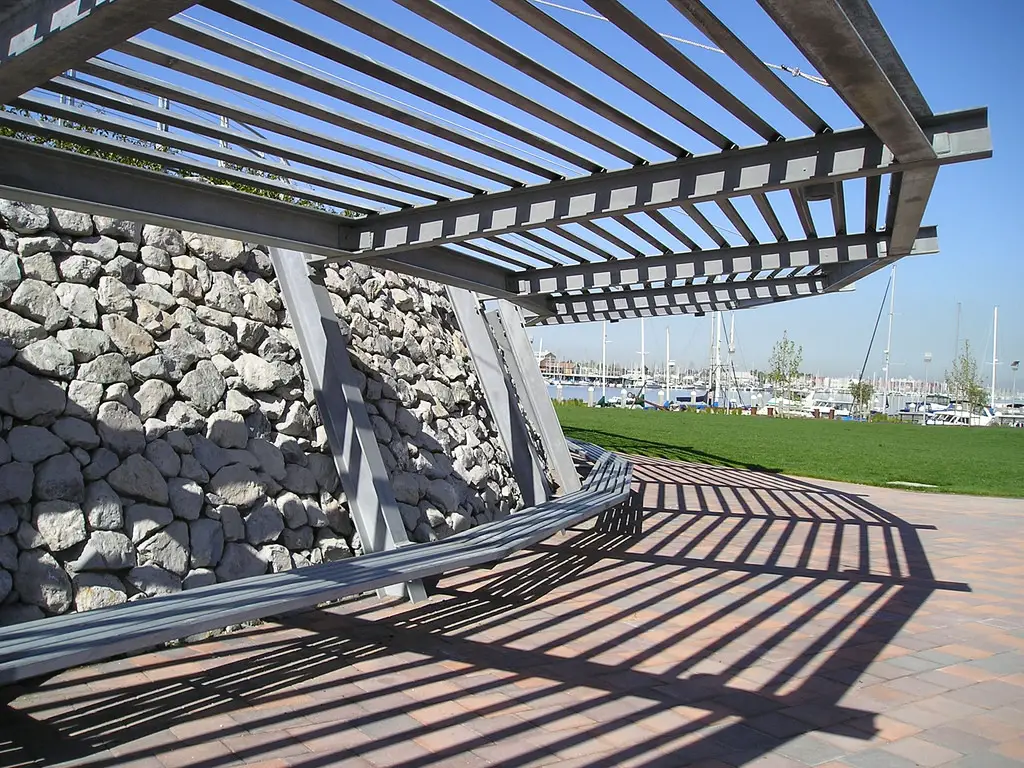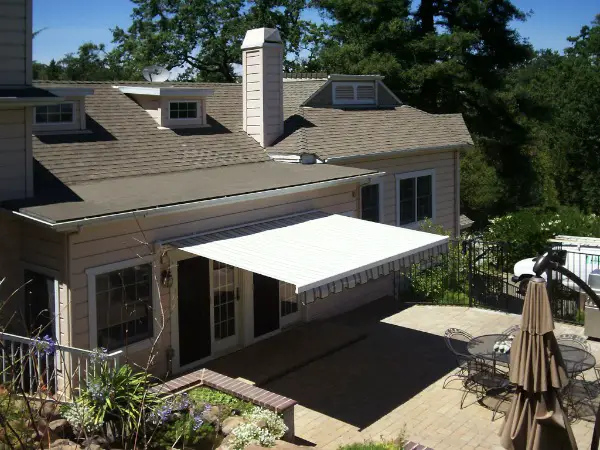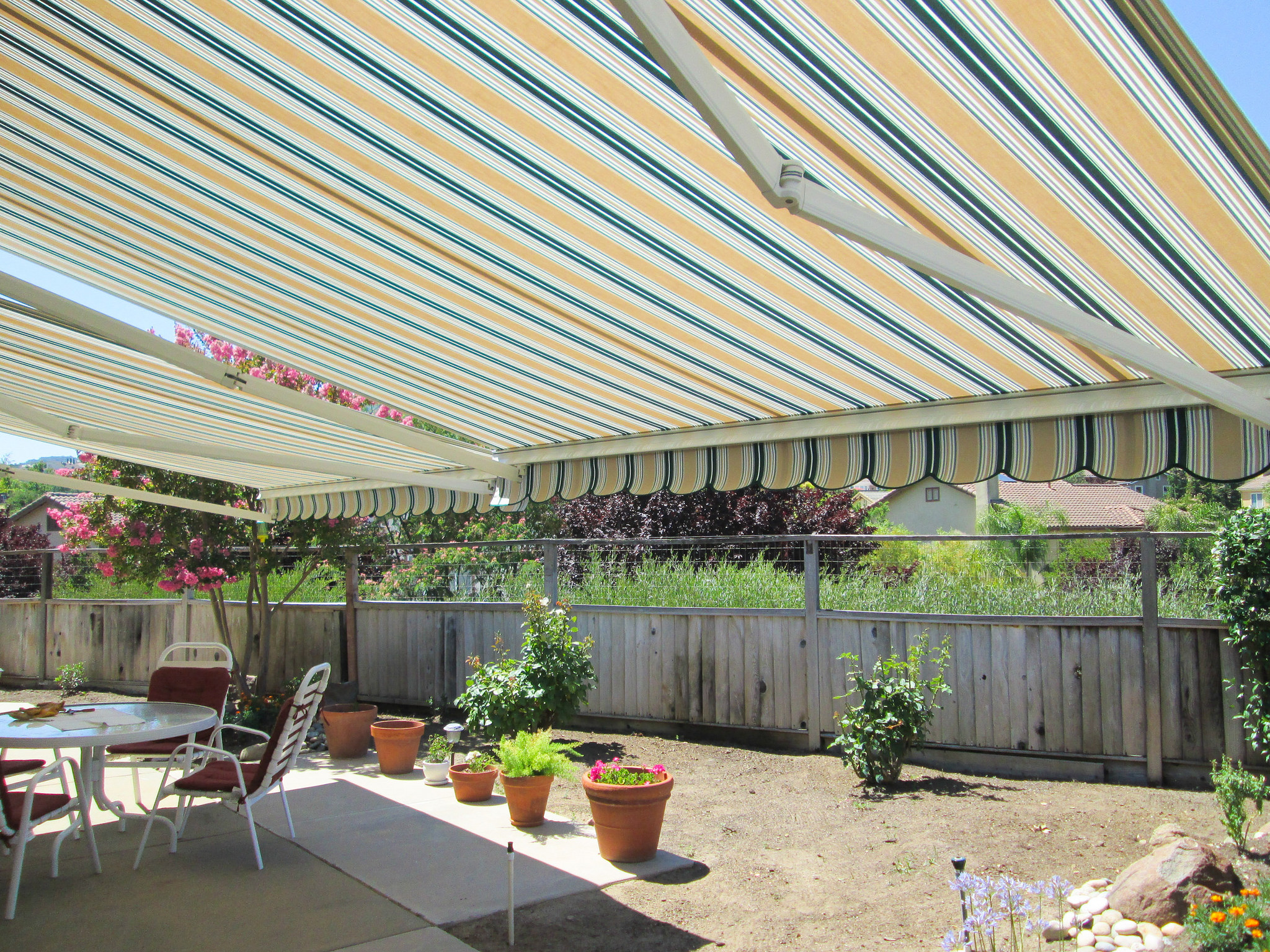Last Updated:December 13, 2025
Best Patio Covers
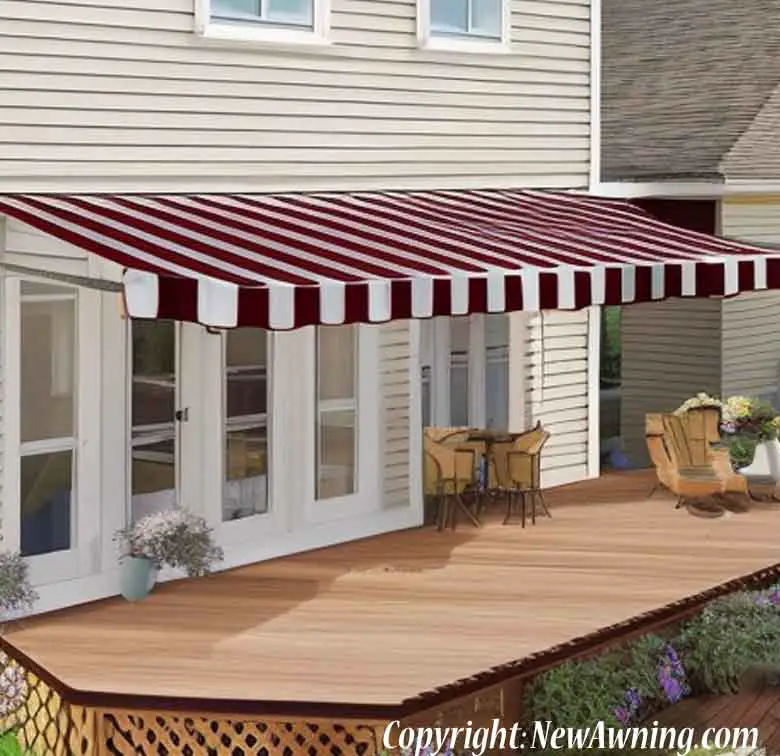
What is a patio cover
The term patio cover is a broad term that can be applied to many different types of structures. At a high level, it is merely a structure that provides shade and possibly protection from rain for a backyard area. We are expanding the term “Patio Cover” to also include stand-alone options such as pergolas and gazebos. For us though, we do not consider a carport to be a patio cover because it has a different and unique set of requirements that aren’t present for the other options.The primary purpose of a patio cover is to provide additional livable and useful square footage to a home. Some patio covers are entirely enclosed to create sunrooms while others merely have the roof and act more like a deck with an awning.
For the purpose of this article, we will divide our results into three different categories based on their construction material. We will explain the benefits and drawbacks of each material, and then include a link to our complete review of the best for each type. The types are:
- Metal
- Wood
- Fabric
Metal Patio Covers
Metal patio covers are the most expensive choice and most rigid. They are typically built by hand by a licensed handyman or construction company. There are some kits that include all the components needed; however, most professionals choose to purchase the base materials by hand so they have total control over the entire project. Between labor and material cost, you can expect to spend about $4.75 per square foot for aluminum and $6.50 per square foot for steel or composite metal.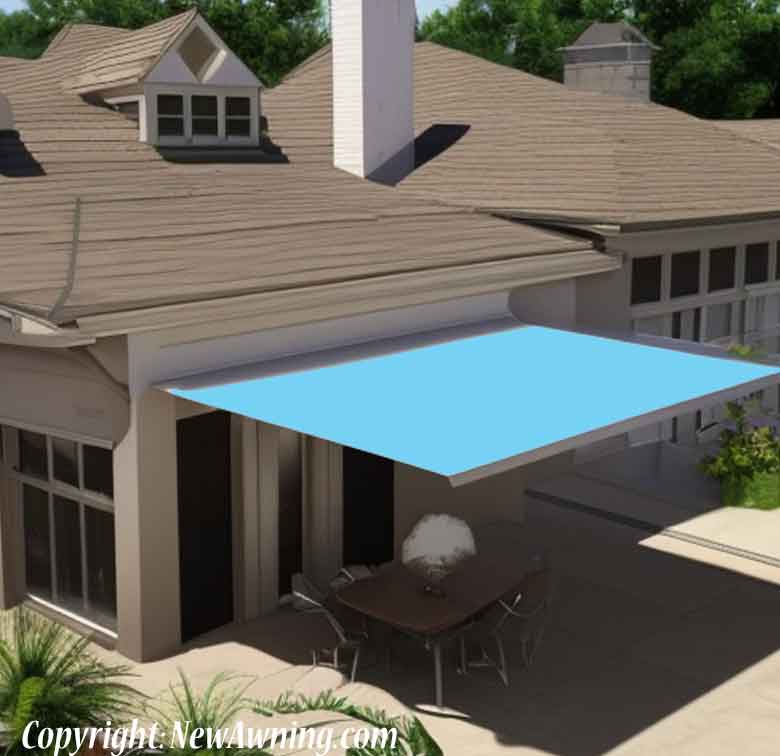
The two primary metal choices are aluminum which is a lightweight metal. It can be used for homes in the southern states. The aluminum covered patio can create a nice covered porch without needing a huge budget. The biggest drawback is that there can be issues in either heavy wind or with significant snow weight which is why we don’t suggest these for northern states or any area that receives any accumulation of snow.
The second metal is steel covered patios. These don’t necessarily need to be stainless steel but can be composed of any composite metal. These should always be setup by a professional company because the weight of the frame can cause serious injury to anyone around or the home if it collapses. A steel frame can weigh more than 200 pounds including the support poles, and this is not something that should be done as a DIY project as a beginner.
The primary strength of the composite metal patio cover is the strength. It is a very durable material, and it can be painted many colors so that to fit in style of the home. This will create a nice livable outdoor space, and this is a bargain at the $6.50 per square foot. The steel frame also lends itself to be fully walled in by either screen or glass to make a sun room.
Wood Patio Covers
Wood patio covers are more aesthetic than functional in our opinion. They are incredibly popular for homeowners because of their beauty, and they lend themselves to having many different layouts. The cost of the wood patio cover will depend entirely on the type of wood selected. There will be a huge difference in price of pine which will be $5.31 for a 2″x4″x 8′ compared with cherry which has a single board cost of $64.96. Regardless of the type of tree you select, you will always want it to be fully treated to prevent weather damage. One of our experts is working on a guide that will help homeowners identify the lower cost wood and stain it to appear as a higher value wood.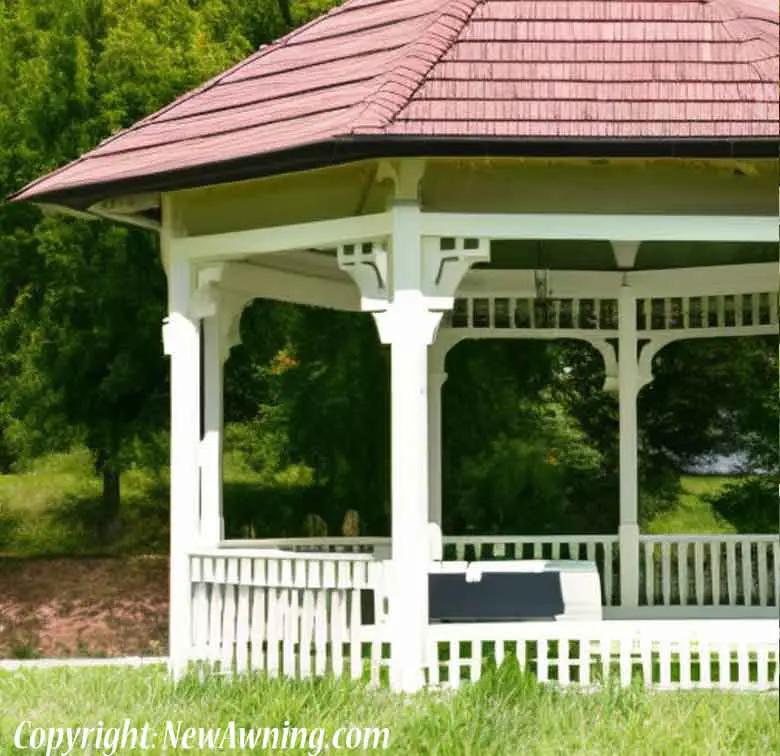 The primary advantage of the wood covers is the wow factor because when they are built correctly will be beautiful, and it can completely transform the exterior of the home. These can also be created by a skilled DIY craftsman. The drawbacks are the financial costs because these are the most expensive on our list, and additionally, they also require ongoing maintenance. In the rural areas, the frame can become the home to birds or bees which build nests that can damage the structure.
The primary advantage of the wood covers is the wow factor because when they are built correctly will be beautiful, and it can completely transform the exterior of the home. These can also be created by a skilled DIY craftsman. The drawbacks are the financial costs because these are the most expensive on our list, and additionally, they also require ongoing maintenance. In the rural areas, the frame can become the home to birds or bees which build nests that can damage the structure.
Fabric Patio Covers
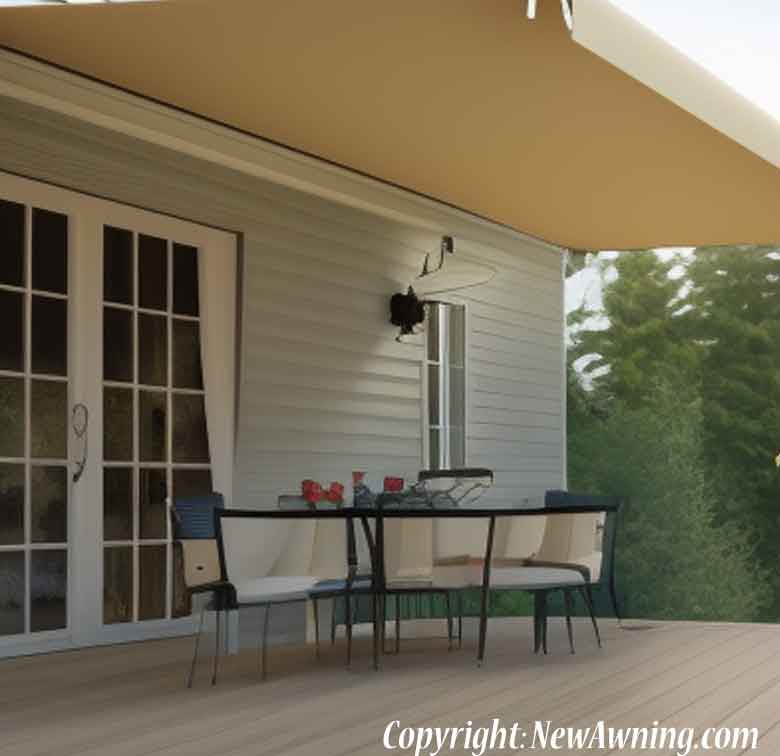 These are the polar opposite to the wood covers listed above. They don’t create a wow factor; however, they are incredibly functional and versatile. The fabrics will either be a poly-vinyl, canvas, or composite material. Some of the top awning makers use a proprietary blend of components to create their fabric so that it gets the water resistance of vinyl with the strength and ease of cleaning of the canvas. Most of the cases the covers are sold as awning kits that come prepackaged with everything required for a moderately skilled homeowner to attach to their home. Depending on quality these cost around $1.10 per square foot making them the best value if you are simply looking to add outdoor living space.
These are the polar opposite to the wood covers listed above. They don’t create a wow factor; however, they are incredibly functional and versatile. The fabrics will either be a poly-vinyl, canvas, or composite material. Some of the top awning makers use a proprietary blend of components to create their fabric so that it gets the water resistance of vinyl with the strength and ease of cleaning of the canvas. Most of the cases the covers are sold as awning kits that come prepackaged with everything required for a moderately skilled homeowner to attach to their home. Depending on quality these cost around $1.10 per square foot making them the best value if you are simply looking to add outdoor living space.
The primary benefit to these is that they serve as a fantastic gateway for the homeowner to evaluate how much they would use a covered outdoor living space. For less than $200, a home could have a covered deck or patio, and it is easily removable if it becomes an issue with a homeowners association or neighborhood council. Additionally, these are built in many different colors that can either blend with the roof or add a pop of color to liven up a boring exterior. To be fair, we may be a bit biased toward this option as our site began focusing on fabric based awnings before we branched out to cover all types of exterior shading. The drawbacks are that they should either be retracted or fully taken down before the winter. Most are not designed to be load bearing, and they can have a catastrophic failure when a lot of snow accumulates on them.
Frequently Asked Questions on Patio Covers
Below we have compiled a list of the most common questions we see on this topic. If you would like to know something that is not covered on this page, please feel free to send us either an email or post in a comment below. While we certainly don’t know everything on the topic, we are happy to share the information we have learned.-
What is the usual height?
Most range from 8′ to 12′ feet, and this greatly depends on the layout of the exterior of the home. -
Do open air patio covers work?
Absolutely! Open air covers are an amazing option especially in the southwestern that don’t receive a lot of precipitation. Most of the kits offer a 50% shade coverage, and can often be cooler than their closed roof counterpart. The reason is the excess heat can escape through the top. -
How are they supported?
When the area is less than 10′ x 10′ then there will be a single pole that is load bearing at each corner. If the cover is attached to a home, it only requires two poles as the side adjacent to the residence can be used for support instead of the poles. When the structure is wider than 16′, we recommend using a third pole in the middle. -
What’s the best patio cover?
This is truly going to decide on what you want. There isn’t a one size fits all model because homeowners have different goals. Once you choose whether you want, metal, wood or fabric, we have guides created for each of those. -
What are your thought on Solar Panels?
I would only consider adding solar panels to a patio cover if all other usable roof space has been converted. The supports are designed to handle a specific amount of weight, and adding the solar panels could possibly lead to structural failures. If you are going to add these, we recommend working with a licensed contractor to ensure you will be within building code. -
Ever heard of Frosted Glass covers?
Yes, we find them beautiful, and we considered adding a fourth type to this page. We ultimately decided to omit them because we wanted to keep the guide more user-friendly, and we believed that topic was a tad more advanced than we wanted to cover in this post. -
Do you have a gallery we could use for inspiration?
We recommend this high-quality video if you are looking for ideas and examples:
Still looking for Inspiration?
If you are still undecided after reading our guide, I wanted to leave you with two extremely robust Pinterest boards that are filled with images. Here is board 1 and board 2.Conclusion
Have you decided to cover your deck or patio? If so, we would love to hear from you in the comments below. What were the primary factors in your decision? Did you install it yourself or did you hire someone? We also have a photo contest for decks, patios, and awnings so we would love to receive an image that we can use on your site. The photograph voted our favorite will receive an Amazon gift card.
Author:
Marcion Albert
Date Published: 4/18/2017
Date Published: 4/17/2018
Marcion Albert
Date Published: 4/18/2017
Date Published: 4/17/2018
.

